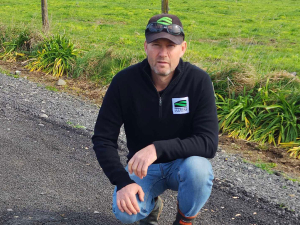Federated Farmers is throwing its support behind the Fast-track Approvals Bill introduced by the Coalition Government to enable a fast-track decision-making process for infrastructure and development projects.
In a submission to the parliamentary environment committee this week, Federated Farmers says it supports the aim of the Bill to enable faster approval of infrastructure and other projects that have significant regional or national benefits.
Feds board member and transport spokesman Mark Hooper says the farmer lobby agrees that “consenting major infrastructure and other projects in New Zealand takes too long, costs too much and places insufficient value on the economic and social benefits of development relative to other considerations”.
“To this we would add that the cost and time to consent major infrastructure projects leads to a lack of confidence that such projects will proceed to completion,” says Hopper.
“This lack of confidence is built into project risk management assessments, with some useful projects not proceeding to Go, whilst others are abandoned partway through or are completed way beyond acceptable timeframes and cost and may be followed with years of litigation.
“Problems consenting major infrastructure projects contribute to economic recession, which is the situation New Zealand currently finds itself in.”
He says further, it leads to poor social outcomes due to a lack of, or poorly maintained public infrastructure and lack of employment opportunities.
“This is felt particularly keenly in the regions, where employment opportunities are often limited.”
Hooper notes that the Bill extends to activities that are already consented but at some point need to be re-consented. Federated Farmers supports the inclusion of such activities, he adds.
“They are often essential activities in communities but incur significant cost to be re-consented, and that cost is ultimately passed onto ratepayers and/or consumers. We think that the Bill will be useful for applicants wishing to minimise the uncertainty of re-consenting existing activities, as it provides a clear order of priority for decision makers.”
Hooper says Federated Farmers understands that the Bill is intended as part of wider Resource Management Act (RMA) reform.
“We note that the Bill does not specifically address strategic planning for infrastructure across New Zealand. As part of the wider RMA reform, Federated Farmers would like to see a comprehensive, nation-wide strategic framework that identifies projects included for fast-track consenting to address deficiencies in resilience (e.g. associated with energy generation and transmission, the roading network, freight cartage, water supply etc), as well as economic development.
“We believe that reform of the RMA should ultimately enable the development of infrastructure and other projects. Once the RMA has been replaced, and regional councils have implemented new regional environmental frameworks, there should be no need for a stand-alone Fast-track Approvals Act. We therefore recommend a sunset clause is inserted in the Bill.”
Written submissions to the environment committee closed April 19.











